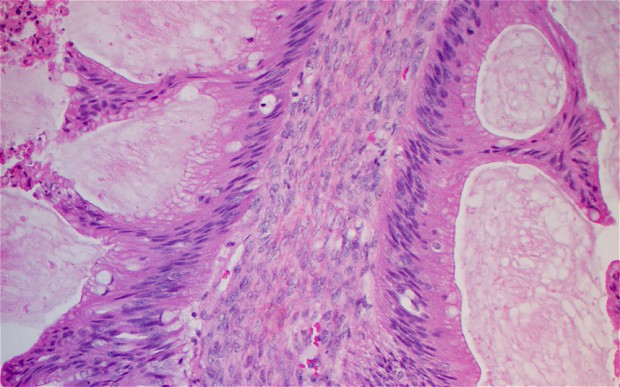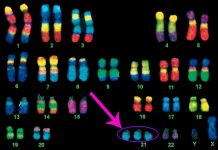By Kathryn Doyle, NEW YORK (Reuters Health) – Ovarian cancer rates in the U.S. began to decline faster in 2002 around the time many older women went off hormone replacement therapy, according to a new study.
That year, the Women’s Health Initiative (WHI) found that estrogen or estrogen plus progestin hormone therapy, prescribed for the symptoms of menopause, was linked to an increased risk of breast cancer, stroke and heart attack.
In a new analysis using census data, researchers found that ovarian cancer rates were falling by about one percent each year before 2002, then dropped by more than two percent per year.
The findings don’t mean there’s a cause-effect relationship between ovarian cancer and the hormone treatments, lead author Hannah Yang of the National Cancer Institute in Bethesda, Maryland, told Reuters Health by email.
But the association is compelling, she said.
“Understanding exposures, such as (hormone therapy), within at-risk populations is useful for overall cancer prevention and control strategies, particularly for tumors that are difficult to treat, such as ovarian cancer,” Yang said.
She and her colleagues used cancer incidence in North America data combined with census data to compare the yearly percent change in ovarian cancers from 1995 to 2002 and from 2003 to 2008. They found a significant change in the rate for women over 50, but not for younger women, according to results in the Journal of Clinical Oncology.
Overall, for women over 50, rates decreased by 21 percent from 1995 to 2008, from 38 cases out of 100,000 women to 30 out of 100,000.
There were more than 22,000 cases of ovarian cancer diagnosed in 2012, with 15,500 deaths, Yang said.
“Therefore, a two percent annual decline equates to a significantly reduced number of new cases and deaths related to ovarian cancer,” she said.
‘MOUNTING EVIDENCE’
“I think that there is mounting evidence that hormone replacement therapy, estrogen alone and combined with progestin, increases risks of ovarian cancer,” Dr. JoAnn Manson, chief of the Division of Preventive Medicine at Brigham and Women’s Hospital in Boston, told Reuters Health.
“But unless a woman has a family history of ovarian cancer, it will still be a relatively small part of the benefit risk equation,” said Manson, who was not involved in the study but was a principal investigator for the WHI.
“Compared to the risk of breast cancer, cardiovascular disease, severity of symptoms, the risk of other adverse events, or quality of life benefits, it’s really going to factor in a limited way as far as making the decision,” she said.
The new results come on the heels of research into the risks of stopping hormone therapy while menopause symptoms are still disruptive (see Reuters Health story of May 1, 2013 [highlight]here [/highlight]).
“The paper does not provide definitive information that (hormonal therapy) accelerates or promotes the growth of ovarian cancer, but it does provide an additional reason for women to be cautious about their choice to consider taking it,” Dr. D. Lawrence Wickerham, who helps run a National Institutes of Health-funded cancer research project in Pittsburgh, told Reuters Health by email.
“Women who are already taking (hormone therapy) should be diligent about obtaining their follow-up examinations and may wish to discuss with their health care provider whether or not to continue the therapy,” said Wickerham, who was not involved in the study.
SOURCE: Journal of Clinical Oncology, online May 6, 2013.












